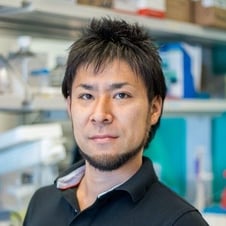

Hitachi Chemical Advanced Therapeutics Solutions and Sexton Biotechnologies will be hosting a FREE webinar with expert panelist to discuss how the security and supply of blood derived materials are effected during novel viral outbreaks.
When: May, 1, 2020- 11:00 AM EST; 08:00 AM PDT; 16:00 PM BST; 17:00 PM CEST
Please register here:https://zoom.us/webinar/register/WN_CeiMkjM_Qe6kTLeUz_Dq4g
Space is limited, so reserve your spot soon!
The current Covid-19 pandemic is indiscriminately effecting industries across the globe, with the cell and gene therapy sector being no exception. Short-term, the effect has been upon current running of clinical trials, with multiple large pharmaceutical companies stating that they will suspend screening, enrollment and apheresis in cellular therapy clinical trials. But what other impacts could the current crisis have on the cell and gene therapy sector?
An overwhelming majority of cell therapy products rely on the use of human-derived products within their manufacturing process. Such products include human serum albumin, fibronectin, cryoprecipitate, AB serum and Human platelet lysate. Outbreaks of new or previously regional infectious diseases (COVID-19, MERS, Ebola, Zika, H1N1, SARS, etc.) seems to be occurring at a more frequent rate. So, more specifically, what effect will the current pandemic have on the supply of these ancillary materials, which could subsequently impact cell and gene therapy manufacturing long after clinical trials have reinitiated?
At this webinar, a panel of experts from Sexton Biotechnologies, Hitachi Chemical Advanced Therapeutics Solutions, and Texas Children’s Hospital will discuss the potential impact of the Covid-19 pandemic on availability of human-derived ancillary materials. In addition, they will explore the potential effect upon how future regulatory landscapes may be modified in order to ensure safety of these products. Panelists will also discuss Sexton’s approach to Pathogen Reduction technology, risk reduction, and the impact on ancillary materials.
Panel Speakers

Sean Werner, President at Sexton Biotechnologies
Sean Werner is President of Sexton Biotechnolgoies, a manufacturer of processing and handling tools and reagents for the development and manufacture of cell and gene therapies. Sean received his PhD from Purdue University in Biology followed by post-doctoral positions at the Indiana University School of Medicine and Eli Lily. Prior to his current role he spent 11 years with the Cook Medical and Cook Regentec filling various roles in the global regulatory and general management functions supporting medical devices, autologus cell therapy, and single use disposable development programs. In his 15 years working in the life science industry, he has guided pre-clinical and clinical testing and submission strategies leading to global commercialization of multiple medical devices and bioprocessing tools.

Alex Klarer, Senior Biomedical Engineer, Innovation and Engineering at Hitachi Chemical Advanced Therapeutics Solutions
Alex Klarer is a senior biomedical engineer with Hitachi Chemical Advanced Therapeutics Solutions' Innovation and Engineering group. Alex focuses on developing solutions to facilitate commercialization and increase patient access to cell and gene therapies. He has been with HCATS since 2017 when he transitioned into the cell and gene therapy industry from biopharma.
 Norihiro Watanabe, Research Scientist at Baylor College of Medicine
Norihiro Watanabe, Research Scientist at Baylor College of Medicine
Norihiro Watanabe is a research scientist based at the Center for Cell and Gene Therapy (CAGT) at Baylor College of Medicine with a longstanding interest in the development of novel immunotherapies for the treatment of cancer patients. In particular, his research experience included developing T cell-based approaches for hematological malignancies including leukemia and multiple myeloma and more recently solid tumors, including prostate, breast, and pancreatic cancers. Since joining CAGT, he has focused his interest on protecting T cells from the immunosuppresive effects of the tumor microenviornment with the overall objective of enhancing in vivo persistence and function. More recently, he has been focusing on developing and optimzing genetic modification strategies/culturing condition to maximize the potency of tumor-targeted T cells.